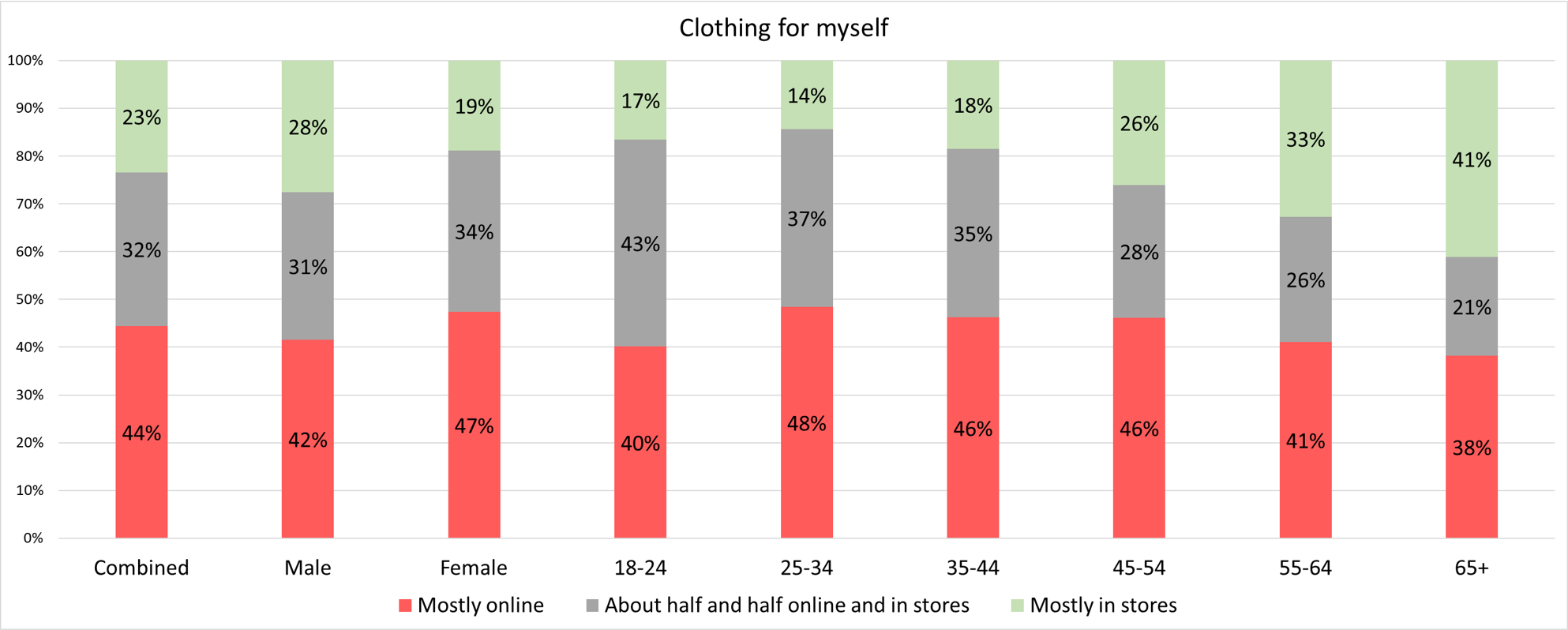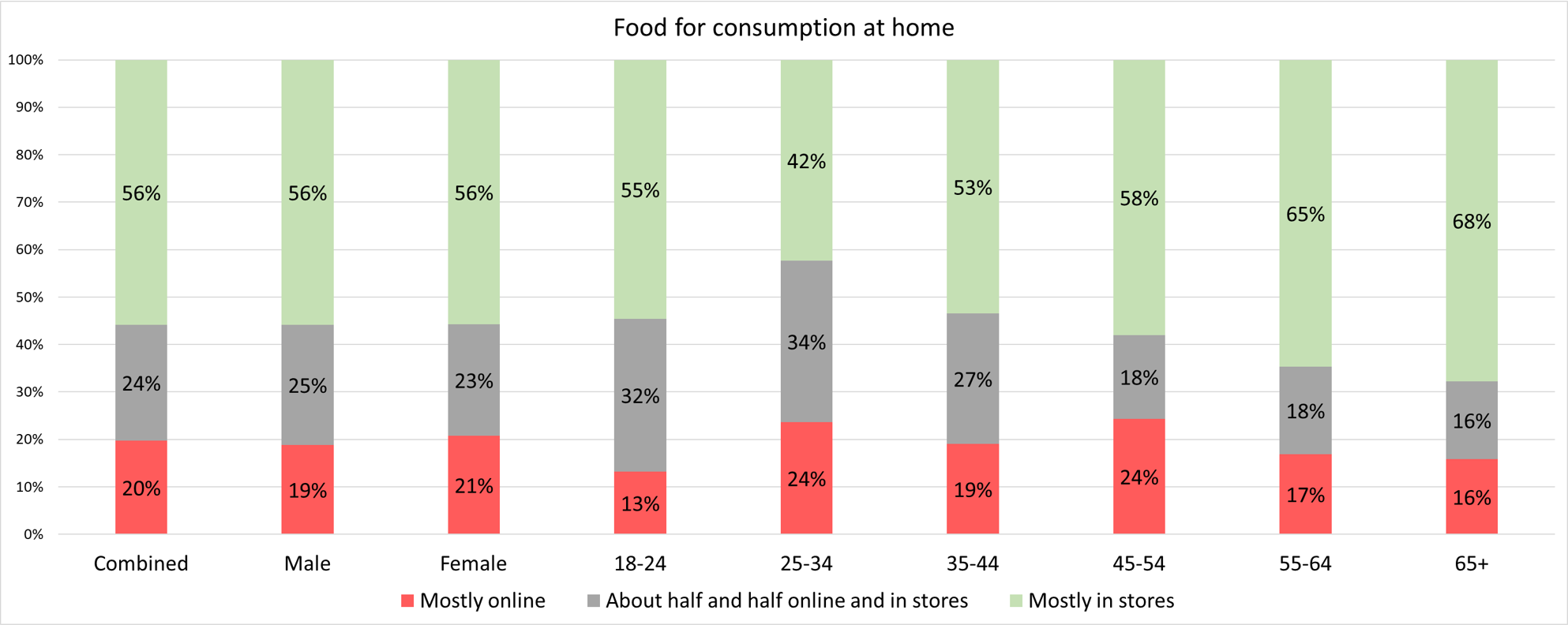With online shopping looking like the most popular way to be purchasing Christmas presents, I wonder how early people are starting and which sites they will be using?
The introduction of events such as Prime Day, Black Friday, and Cyber Monday means we spend more in October and November, as many shops have extended the event from one-day to a week-long. Meaning they can advertise to us for longer and tempt us to buy gifts earlier. Over the years, the way we purchase things is changing, and: the value of online shopping has nearly doubled over the past five years. In 2019, it accounted for £1 in every £6 we spend!
"If Prime Days are under the holiday umbrella, consumers will need to be convinced that they are getting a deal that is as good or better than the discounts offered over the Black Friday through Cyber Monday period.” – Joe Derochowski
Having an increase in online shopping is good news for brands and retailers, presenting an opportunity to drive revenue success in the second half of the year: and a challenging start to 2020.
In a new study conducted by Emotional Logic, we have noticed that the average UK shopper has also shown to be making a switch and purchasing more online. With many consumers shopping via e-commerce for the first time – this presents massive opportunities for brands to engage with new-to-online customers. 38% of over 64-year-olds will be shopping mostly online for close family and friends, with 41% continuing to shop in-store (when they can).
Before the outbreak of COVID-19 consumers, were shifting towards a digital and cashless society; however, the pandemic has amplified it. Usually, around the Christmas period, people withdraw more cash in December than in every other month – demand for cash peaks, whether it be for presents or night outs (and drops in January). However, given the current circumstances with COVID-19, we are expecting this to change.
The majority of sales made during Christmas will be online.
When it comes to purchasing Christmas presents for close friends and family, online seems to be the most favourable with half (50%) of Brits planning to shop this way during the Christmas period. Those aged between 25-34 will be doing the most online shopping (57%) – compared to just 40% of those over 65. Just over a third (38%) of consumers are planning on doing about half and a half (online and in-store), however this is expected to change given the new lockdown rules.

However, when buying Christmas presents for other people, there is a slight (3%) difference in consumers shopping in-store rather than online. Looking for a gift for someone can sometimes be a challenge: when walking through a shop, you often get inspiration on what to buy – which you would not get online. Because of the new restrictions, consumers aren't going to be able to do this unless they browse in their local supermarket.
Brands are going to have to update their website and create an easy pathway for consumers to follow. Get more attention and engagement by building nudges into your site based on Behavioural Science. Our insight from over a decade of website optimisation research will help you optimise look and feel as well as functionality to guide users implicitly to action.
1/4 of Brits will be coming to the high street.
Buying clothing over the Christmas period might not be a priority: when shoppers are spending, they are mostly doing so online (44%). However, males are going to be doing 9% more shopping in-store, compared to females when purchasing clothing.
25-34-year-olds will be doing the most online clothes shopping (48%), whereas over 65-year-olds will be doing the most in-store purchasing (41%). According to a study by Revel Systems, this is because they prefer the in-store experience and prefer to purchase at their local retailer instead of online. Younger generations are not buying like their grandparents or parents, so advertisements and marketing materials need to have a tailored approach.
However, with the New National Restrictions (from the 5th of November) closing all non-essential retail, shoppers will be forced to shop online, or at least until the lockdown is lifted.

Around 2/5s of shoppers will be purchasing homeware (cushions, curtains) and tableware (glasses, plates) items in-store
Homeware and tableware items bought in store (43%): this is because stores play an important role in helping customers check the quality and feel of the product.
However, Fashion brands are starting to sell homeware and tableware online, and in-store brands have been able to create a one-stop-shop for consumers and have found a way to reach their existing consumer-base. Offering to sell these products online makes it easier for the consumer to purchase because they already trust the brand and, shop there.
Online food shopping is not a crowd-pleaser this Christmas.
This Christmas, 56% of shoppers will be waiting in lines and shopping in-store for their food items. In the UK, it took around two decades for online grocery shopping to go from 0 to 7% however; because, of the coronavirus outbreak, it reached around 13% in roughly eight weeks, with millions of shoppers trying it for the first time.
Like anything, online food shopping seems to have had a drop-off effect now only, 20% of shoppers planning to buy their groceries online, with 24% of 25-34-year-olds doing so the most.
A lot of shoppers have run into problems with purchasing groceries online, which is why they now choose to shop in-store.

Alcohol and non-alcoholic purchases will be made in-store
The majority (59%) of Brits are choosing to purchase in-store when choosing alcoholic and non-alcoholic beverages – 22% of shoppers are shopping half online/half in-store and, 19% will be buying online.
25-34-year-olds will be doing the most purchasing online (22%), and over 65-year-olds will be doing the least (15%).
Ho Ho Ho! Brits are decking the halls with in-store purchasing.
48% of Brits are planning to purchase their Christmas decorations in-store rather than online (23%).
Male and female purchasing decisions are similar with, only 3% more females choosing to purchase more online.
Overall online and in-store Christmas Data 2020

For the whole report or to find out more details, please click here.
Whether you need insight to adjust your strategies to the new normal or are thinking about launching new services, we can help you get it right. Emotional Logic is a specialist behavioural insight agency, and we offer a range of cost-effective research solutions to ensure your strategy connects with the constantly shifting needs of the consumer. Please get in touch for a free consultation.
